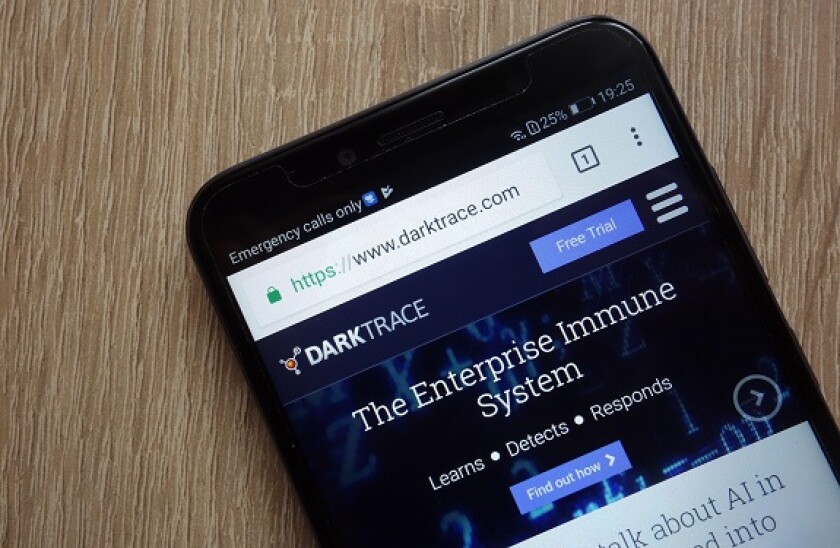Founded in Cambridge in 2013, Darktrace uses AI to target cybersecurity threats as they are automatically detected in systems. The company has over 4,700 clients including many blue chip companies and public bodies and counts KKR as a major investor, as well as Summit Partners, Vitruvian Partners, and the venture capital arm of Samsung.
Many in the City will be pleased that a home grown technology company such as Darktrace has chosen to list in London, rather than going to New York like many other growth companies in the past.
But at the same time Darktrace is also facing scrutiny about its links to billionaire Mike Lynch’s Invoke Capital, which was one of its earliest backers. Lynch sat on Darktrace’s board until 2018 and he still owns almost 20% with his wife, Angela Bacares.
The scrutiny stems from the fact that Lynch is the subject of a live extradition request by the US, where he faces fraud charges related to the $11bn sale of Autonomy to Hewlett-Packard in October 2011. HP was later forced to write down the value of Autonomy by $8.8bn due to extensive accounting irregularities. Lynch has always denied any wrongdoing.
Sushovan Hussain, the former Autonomy CFO, is also a shareholder in Darktrace. Hussain is serving a five year prison sentence in the US having been found guilty of fraud relating to the sale of Autonomy in May 2019. His sentence was upheld on appeal.
Darktrace’s registration document spelled out the extensive past links between it and Invoke Capital, which included support services that Darktrace says will be entirely severed by the time the company goes public later this month.
The document also included the disclosure that Darktrace was subpoenaed by US authorities in 2018 for information on Invoke Capital, which it complied with.
One risk factor for the IPO is that Darktrace may face money laundering investigations relating to its historic funding by Invoke, although the risk of a successful prosecution in the US and UK is low, according to the company.
While Darktrace stresses its operational separation from Invoke and Lynch, the absence of any bulge bracket banks on the IPO syndicate, despite Darktrace’s mooted valuation of around £3bn, suggests unease about these past links.
UBS is said to have resigned as one of the sponsors a few months ago after the Swiss bank’s compliance department expressed concern about the company’s connections to Lynch. UBS declined to comment.
In the words of one senior equity capital markets banker, whose firm is not involved in the IPO, an active criminal case against a major shareholder “creates a very difficult compliance conundrum for everyone because it is live. It is difficult to take a view on a company that is connected to a live extradition request. This makes it extremely difficult for organisations to get comfortable with it.”
For investors though, Darktrace’s well publicised governance concerns are unlikely to be a deal breaker. Many of the big London money managers used ESG worries as a PR-friendly excuse to publicly shun Deliveroo’s disastrous IPO. But the reason the IPO traded so badly in the aftermarket was because it was mispriced. Occam's razor applies: had the deal been a lot cheaper, more funds would have supported the flotation.
“Every IPO prospectus is designed to optimise the position that you IPO at,” said an equity capital markets lawyer. “There should be no bad news at the time of an IPO, although here it is somewhat different. But the business is trying to say it is distinct with a distinct management team which are separate from the original founder and investor.
“Ultimately the question is whether the business itself is of interest to the market and the general sense is that it is.”
The success or failure of Darktrace’s IPO will depend on how high a valuation the company seeks, and the merits of its business model.
“Some institutions may have problems with [the governance concerns]," said an ECM banker away from the listing. "Others might see it as a great business and it is very unfortunate that one of the major shareholders has been tied up in all this. Therefore, they might get the stock at a cheaper level than they otherwise would have.”
Despite ESG never being a bigger topic of conversation within equity capital markets, it still takes a back seat compared to other considerations — chiefly, valuations.

